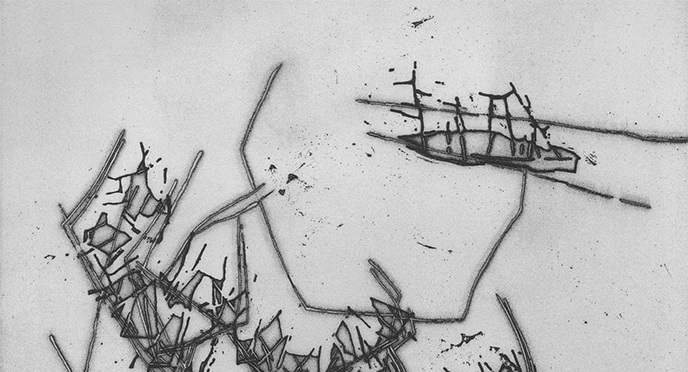Paul Celan’s language never tires. It is constantly propelling us through the webs of images in his poems. Celan uses language to break the conventional barriers of language itself.
—Laura Buccieri
Sackcloth-mold, tower-high.
Eye slot
for the destarred
at the end of the grief-fibril.
The eyelash-seam, at a slant
to the god-blazes.
In the mouthbay the place
for the rowing
Kaisertwitter.
The. And the Going-with-
him across smokeblue,
blank
tableland, you.
Paul Celan was born in Czernowitz, Bukovina, in 1920, and is widely considered to be one of the most innovative poets of the twentieth century. A German-speaking Jew, he was sent to a forced labor camp during World War II. Celan settled in Paris in 1948, where he lived and wrote until his suicide in 1970.
Pierre Joris has written, edited, and translated more than fifty books, including poetry, essays, translations, and anthologies. Most recently he published Barzakh: Poems 2000-2012, Meditations on the Stations of Mansur al-Hallaj, and the fourth volume of the anthology Poems for the Millennium: The University of California Book of North African Literature. In 2005 he received the PEN Award for Poetry in Translation for his translation of Celan’s Lichtzwang / Lightduress.
Laura Buccieri is a bookseller at Berl’s Brooklyn Poetry Shop.
Read all of our Poetry Month coverage here

